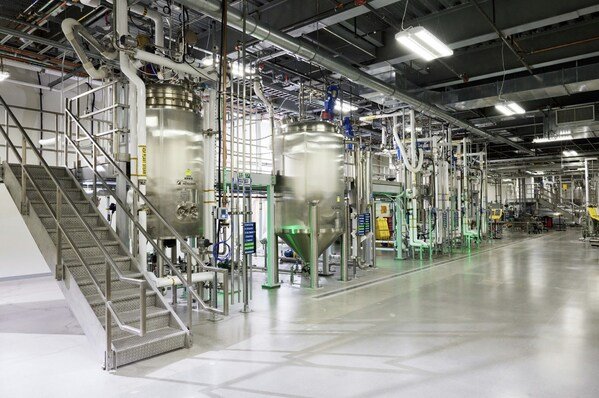Monday, 16 February 2026
GreenLab partners with Ginkgo Bioworks to scale up production of sweetener
To scale up its production of brazzein, GreenLab will leverage its proprietary technology to grow proteins inside corn kernels, optimising its process with Ginkgo’s plant trait services, protein services, and deployment capabilities GreenLab, an emerging…

To scale up its production of brazzein, GreenLab will leverage its proprietary technology to grow proteins inside corn kernels, optimising its process with Ginkgo’s plant trait services, protein services, and deployment capabilities
GreenLab, an emerging next-generation plant-biotechnology company producing complex proteins in corn, and Ginkgo Biowork, which is building the leading platform for cell programming and biosecurity, announced a new partnership. Together, GreenLab and Ginkgo aim to enable the production of brazzein, a sweet-tasting protein found in the fruit of the native West African Oubli plant, at commercial scale. The two companies have previously partnered on a project to develop an enzyme for GreenLab’s PFAS degradation application.
The global sugar replacement market is growing due to increased consumer demand. Sugar substitutes can help manage obesity, but some artificial sweeteners have been linked to various health issues including heart disease. Novel sweeteners — like brazzein, which has a sweetness factor up to 2,000 times greater than sucrose — can be used as natural substitutes for sugar in products across the food and beverage industry.
GreenLab hopes to revolutionise the sweetener industry with brazzein. Its proprietary technology allows it to grow enzymes and other proteins inside of corn kernels. By producing proteins in a cultivated crop, GreenLab can readily scale production across acres of cornfields, with little additional up-front capital and infrastructure. After the protein of interest is extracted from the kernel with minimal waste, most of the corn used will then proceed along the existing value chain, including food, feed or fuel. Thanks to its proprietary technology, GreenLab currently has two transformative enzymes in commercial production, including manganese peroxidase and laccase, and has already successfully grown corn containing brazzein.
Technology
Setting the Standard for Sustainable Ingredients
Feb 16, 2026 | Ingredients
Chiquita Advances Banana Innovation with Completion of Yelloway Banana Pan-Genome
Feb 13, 2026 | Company News
Food Testing
Redefining Trust in Organic Foods through Independent Testing
Feb 13, 2026 | Food Safety and Testing
AFNOR International Eyes Global Food Safety Growth with HACCP Group Takeover
Feb 04, 2026 | Australia
More Popular
India’s Nutraceutical Sector Poised for Tenfold Growth over Pharmaceuticals: FSSAI
Feb 16, 2026 | Events
Saputo Enters Agreement to Divest Majority Stake in its Argentina Operations
Feb 16, 2026 | Company News
JBS Inaugurates New Plant in Saudi Arabia
Feb 16, 2026 | Company News





